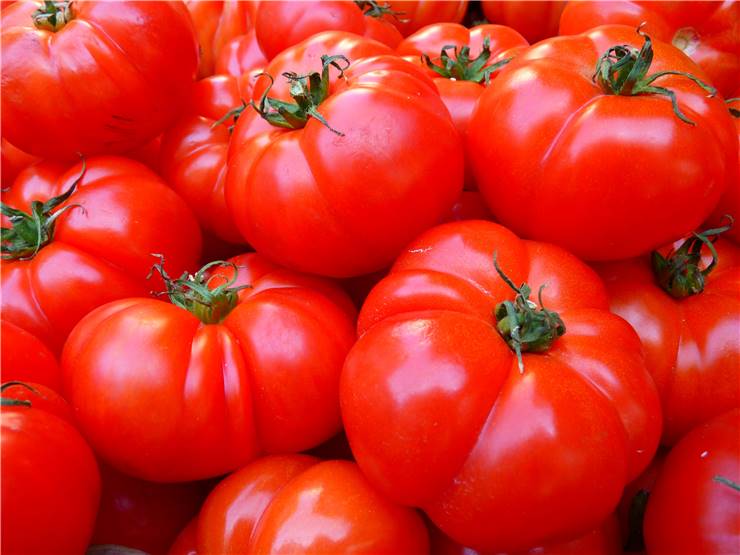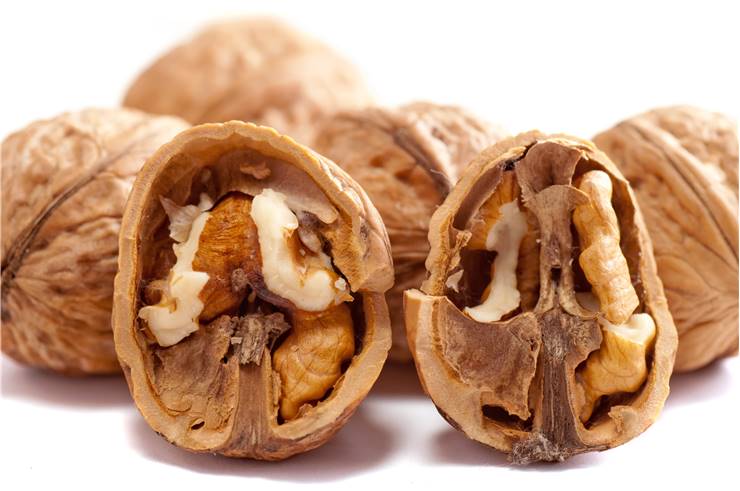What's the Difference Between Fruits and Vegetables?
Botanically speaking, fruit is the mature ovary of a flowering plant being pollinated, whether it tastes sweet or savory. It’s the edible part of a plant which consists of seeds and surrounding tissues. These can be fleshy fruits, such as peach, all sorts of berries, pumpkin, tomatoes, etc. or dry fruits from where the water has been removed naturally by sun-drying or by chemical processes. All other parts of a plant, including leaves, roots, and stems are called vegetables. Vegetables don’t contain seeds, nor they develop from flowers.
Considering the definition of fruits, nuts, beans, avocados, eggplants, and tomatoes are all, technically, fruits, whereas leaves (e.g. spinach and lettuce), stems (e.g. celery and ginger), roots (e.g. potatoes, carrots, and radishes) and stems (e.g. cauliflower and broccoli) are vegetables.

The question why so many people refer to some fruits as vegetables can be answered from a culinary perspective. Since most fruits taste sweet due to the presence of a simple sugar in them called fructose, we prefer to consume them as a dessert or a snack. On the other hand, most of the vegetables have a savory taste (less sweet), which is why there are so many people who are convinced that tomatoes are a vegetable. Chefs and all public associate these two foods with how they taste rather than differentiating their botanical characteristics.
In spite of different cultural and culinary points of view, both fruits and vegetables are very nutritious since they are excellent sources of vitamins, low in calories and fat and high in fiber. However, fruits contain more sugar and therefore, more calories. This is the reason why people mostly refrain from fruits intake while on a diet. Generally, vegetables are lower in calories, but some of them like potato and beet may be quite higher.
Even though vegetables and fruits are widely used in baking and cooking, they nourish us the most efficiently when consumed raw. One of the biggest difference between fruits and vegetables is that veggies often contain a higher number micronutrients necessary for good health, which are vitamins, minerals, and phytonutrients. These micronutrients are vitamin A, vitamin B-complex, vitamin C, vitamin D, vitamin E, calcium, iron, etc. They are crucial for the healthy functioning of all our body parts.
Fruits contain more macronutrients than vegetables. Those are energy-giving and structural caloric components of foods: carbohydrates, proteins, and fats. Fructose is the simple type of sugar that is the main component of most fruits. It belongs to the simple carbohydrates category. Both fruits and vegetables contain a complex carbohydrate called fiber, and that isn’t digested in the body (not used for energy). This complex carbohydrate is essential for healthy living.
Another type of “fruits” are legumes and nuts. Generally speaking, nuts contain higher concentration of proteins and omega-3 and omega-6 fatty acids compared to fruits. Legumes are grown culturally. These fruits include lupin bean, alfalfa, soybeans, lentils, soybeans, etc. These fruits have a much higher concentration of complex carbohydrates and proteins than nuts, vegetables, and fruits.
Other chemical compounds that are contained in fruits and vegetables are antioxidant phytochemicals. They are naturally present in plants (vegetables) and fruits and give them their unique color. These phytochemicals aid us with protection against oxidation, which is the cause of aging.
Consuming more vegetables than other foods increase our intake of the nutrients that improve our health while decreasing more caloric processed foods. That is why it is recommended, especially to the people who want to lose their weight and who are not very active, to practice this approach. It is all about enabling your organs to operate more efficiently by burning stored energy.

Although one serving of fruits has a bit more calories than one serving of vegetables, that does not include starchy veggies like potatoes or beets. However, both fruits and vegetables are part of a healthy diet. Most nutritionists recommend that fresh fruit and vegetables should make up half of the daily food intake, consuming a bit more vegetables than fruits. Various studies showed that fruits and vegetables reduce the risks for some of the most critical medical conditions, such as stroke, cancer, high blood pressure, diabetes and heart disease. That is the reason why people have been strongly advised to put efforts in increasing the amounts of these two precious foods.

